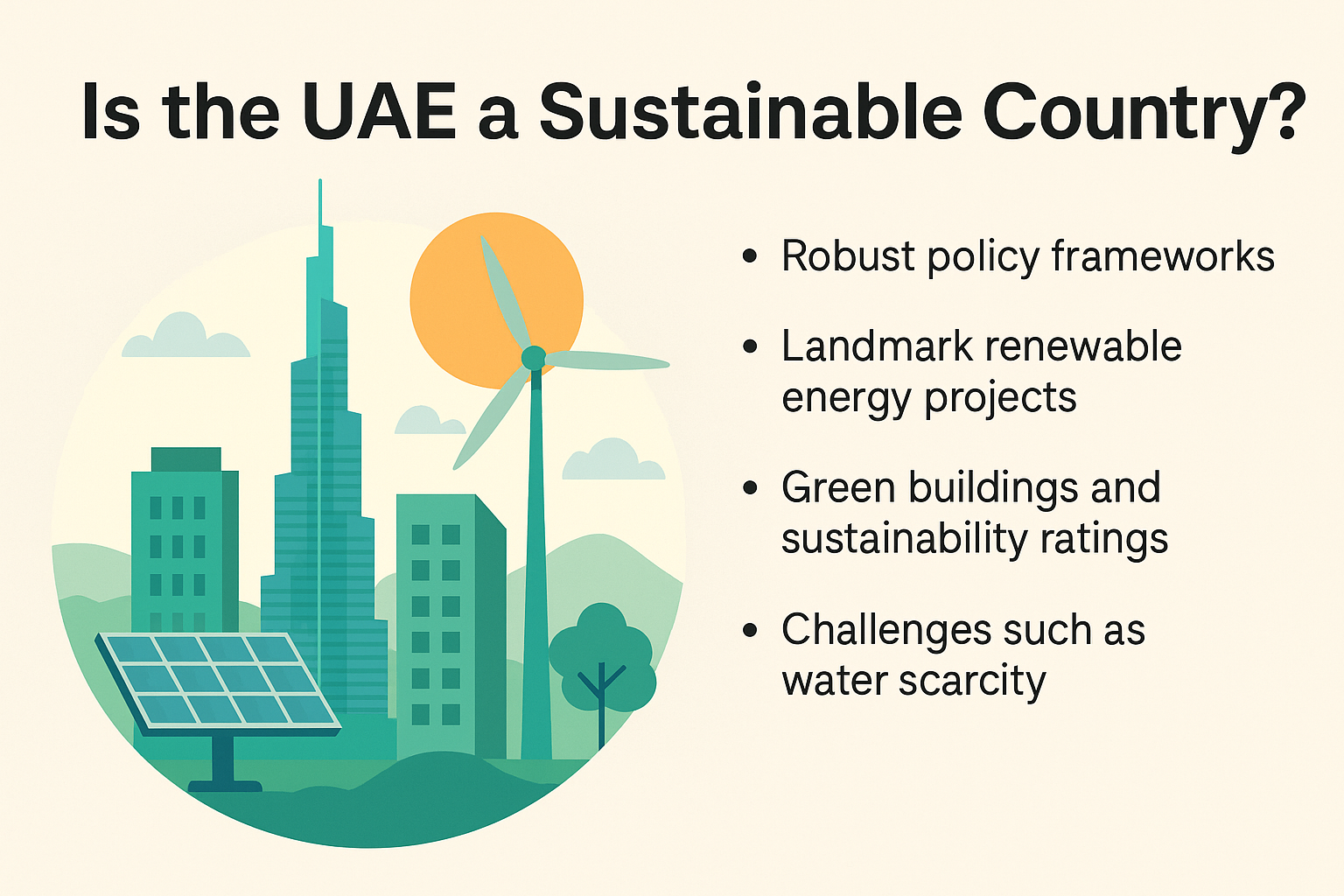The question of whether the United Arab Emirates (UAE) is a sustainable country is best approached with cautious optimism. While notable challenges remain, the UAE has made remarkable progress in its journey toward becoming a global model of sustainable development. With ambitious policies, technological innovation, and international collaboration, the country is actively redefining what sustainability means in the context of a rapidly developing desert nation.
Robust Policy Frameworks and National Goals
One of the clearest indicators of the UAE’s sustainability commitment is its comprehensive policy landscape. Key strategies such as the UAE Energy Strategy 2050, Green Agenda 2030, and the landmark Net Zero by 2050 Initiative serve as national roadmaps for environmental responsibility. These frameworks prioritize emissions reduction, increased energy efficiency, and the integration of renewable energy into the power grid.
For example, the Energy Strategy 2050 aims to increase the contribution of clean energy to the total energy mix to 50% by 2050, while reducing the carbon footprint of power generation by 70%. These goals are not merely aspirational; they are backed by large-scale investments and measurable performance indicators.
Pioneering Renewable Energy Projects
The UAE has established itself as a leader in renewable energy development. One of the most notable projects is Masdar City—a low-carbon, smart urban development that integrates energy-efficient architecture, public transit, and renewable power. Another flagship initiative is the Mohammed bin Rashid Al Maktoum Solar Park, which will become one of the world’s largest solar farms upon completion. These projects reflect a national commitment to replacing fossil fuel dependency with clean alternatives.
Green Buildings and Sustainable Infrastructure
In the built environment, the UAE is taking bold steps to promote sustainable urban development. Cities such as Dubai and Abu Dhabi have made sustainability ratings mandatory for new construction. Building regulations now require energy efficiency, water conservation, and waste reduction measures in line with international and local green building standards.
Frameworks like LEED (Leadership in Energy and Environmental Design) and Estidama (specific to Abu Dhabi) are commonly applied. With support from LEED Consultancy UAE, developers can achieve certifications that enhance building performance and occupant comfort while aligning with national environmental objectives. These consultancies streamline the certification process, ensuring that both private and public projects contribute to a greener urban fabric.
Societal Engagement and Awareness
Sustainability in the UAE isn’t limited to infrastructure and energy—it extends to culture, education, and community behavior. Public awareness campaigns, school programs, and corporate sustainability initiatives are fostering a more environmentally conscious society. The government is also promoting sustainable lifestyles through policies that encourage recycling, public transportation use, and responsible consumption.
Youth engagement is particularly strong, with organizations like Youth 4 Sustainability empowering young people to participate in green entrepreneurship and climate advocacy. These efforts ensure that future generations inherit not only sustainable policies but also the values that uphold them.
Remaining Challenges on the Path to Sustainability
Despite its achievements, the UAE still faces key obstacles. Water scarcity, due to the region’s arid climate, remains a critical issue. Desalination processes, while effective, are energy-intensive and environmentally taxing. Carbon-intensive industries, particularly in oil and gas, continue to pose challenges for full decarbonization. Additionally, consumer lifestyles characterized by high resource use must evolve toward more sustainable habits.
However, these challenges are well recognized by policymakers and are actively being addressed through innovation, regulation, and international cooperation.
Conclusion: A Nation on the Path to Sustainability
The UAE is not yet fully sustainable—but it is firmly on the path. Its leadership in green innovation, commitment to international climate goals, and progress in clean energy, construction, and education reflect a national transformation in motion. The country has emerged as a sustainability influencer not just in the Middle East, but globally.
For those looking to contribute to this momentum, working with LEED Consultancy UAE offers a direct path to align with national goals while embracing green building excellence. The UAE’s sustainability journey is ongoing—but its direction is clear, deliberate, and full of promise.

